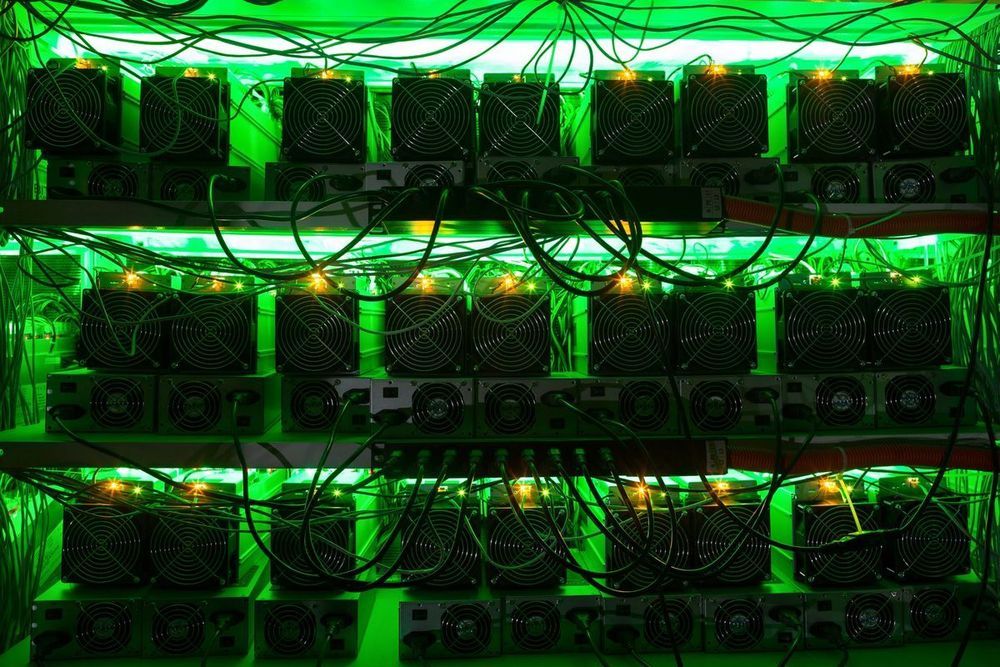“Basic income is not a favor, but a right.”
Watch Rutger Bregman’s full TED Talk to learn the case for basic universal income: http://t.ted.com/xex6cs4.

“Basic income is not a favor, but a right.”
Watch Rutger Bregman’s full TED Talk to learn the case for basic universal income: http://t.ted.com/xex6cs4.

In 2020, slavery is not gone from this planet…
Ira Pastor, ideaXme life sciences ambassador, interviews Bakary Tandia, Co-Founder of the Abolition Institute, a group working to promote awareness of, and dedicated to ending, the practice of slavery in the west African country of Mauritania.
Slavery and enslavement are defined of the state and condition of being a slave, where the individual cannot quit their service to another person and is treated like property.
In chattel slavery, the enslaved person is legally rendered the personal property of the slave owner. In economics, the term de facto slavery describes the conditions of unfree labor and forced labor that most slaves endure. In the course of human history, while slavery was often a feature of civilization and legal in most societies, it is now outlawed in all countries of the world.
In 2019, approximately 40 million people, of whom 26 percent were children, were enslaved throughout the world despite it being illegal. In the modern world, more than 50 percent of enslaved people provide forced labor, usually in the factories and sweatshops of the private sector of a country’s economy. In the industrialized countries, human trafficking is the modern variety of slavery; in the unindustrialized countries, enslavement by debt bondage is a common form of enslaving a person, such as captive domestic servants, forced marriage, and child soldiers.

The next decade is going to be a transforming decade as many many technologies (some of which we all like to share in this group) are converging and maturing enough to rearrange our society in almost any aspect we can conceive.
I’m calling to those who are interested in creating and implementing an alternative model for the current social and governance systems, let’s build an open state that we can all support and trust regardless of our age, sex, geographical location, or belief system.
In the next 10 years, key technologies will converge to completely disrupt the five foundational sectors—information, energy, food, transportation, and materials—that underpin our global economy. We need to make sure the disruption benefits everyone.

The recent 2020 US West Coast wildfire has opened infernos, as it ravaged hundreds of homes and charred hundreds of neighborhoods. On September 10, 2020, CNN announced that the Creek Fire had taken more than 166,00 acres after destroying 360 structures in Central California, Amidst a state emergency, firefighters had to defeat the “beast” that turned the scenery to a similar fiction movies scene on a doomsday. Wildfire causes environmental disasters that were attributed by many scientists to climate change. The preparedness, detection, and management of wildfires and other environmental disasters, that affected the environment hinge on satellite technologies, essentially, the Remote Sensing of sea surfaces and land areas, and the civil space-based Earth Observation and its applications. Such space-based technologies are deployed to assess, monitor, and manage local, regional, and large-scale transboundary environmental issues that impact the societies, economies, and ecosystems. Thanks to its large areas’ data collection and high-frequency capabilities Earth Observation, in particular, has become a powerful tool to monitor the terrestrial environment and manage environmental disasters as it be addressed in this article.
Satellite technologies have been used to understand climate change better to find solutions to mitigate its deteriorating consequences, such as hurricanes, droughts, rising sea levels, melting polar ice caps, wildfire, and floods. Scientists relied upon various observation systems and satellite technologies, networks of weather balloons, buoys, and thermometer, to collect climate change’s evidence from the depths of the oceans to the top of Earth’s atmosphere. For instance, EO is relied upon to map the greenhouse gases. Earth Observation (EO) monitors the carbon dioxide (CO2) concentration, the second most abundant greenhouse gas component after water vapor, satellite monitored through water management, and weather forecast [1]. Public and private entities harnessed spectroscopy and satellites to monitor externalities data from various sources.

Virgin Hyperloop and Bangalore International Airport Limited (BIAL), operator of the Kempegowda International Airport (BLR), have signed a memorandum of understanding to conduct a pre-feasibility study for a proposed hyperloop from the airport to the city centre.
Virgin says its 1,080km/h vacuum-tube travel concept could whisk passengers in pods downtown in 10 minutes.
Signatories were Sultan bin Sulayem, chairman of Virgin Hyperloop and DP World, and Mr. TM Vijay Bhaskar, chief secretary of the Government of Karnataka and chairman of BIAL’s board of directors.
“A hyperloop-connected airport would dramatically improve the delivery of cargo and create an ultra-efficient supply chain,” Sultan bin Sulayem said.
The study on technical, economic and route feasibility is expected to be done in two six-month phases.
“This mode of transportation offers enormous economic potential, connecting passengers at unprecedented speeds, with zero emissions,” said Mr. Hari Marar, BIAL chief executive.

Space exploration may long have been the domain of national governments due to the huge budgets required. Investment from the private sector was slow to pick up due to uncertain economic returns and the concern that their involvement will in some way downplay the virtues of science. However, recent developments have seen increased participation by the private sector, ranging from partnerships with federal space programs to commercial space flights. As an investor, determine whether there is value to be unlocked from your support of space exploration activities, the feasibility of making a consistent return on investment and your capacity for risk.
You do not need to be a billionaire to invest in outer space. Several exchange-traded funds invest in aerospace companies likely to be involved in space exploration technology and related equipment. You can opt to buy stock in individual aerospace firms after diligent research to find firms that have the best track record. Investing in space ventures directly is too risky, and you have to be experienced and knowledgeable about the respective companies’ technology, management and business plans. In addition, their stocks are likely to plummet hard after setbacks or major disasters, so getting a diversified fund spreads the risk.
You can choose to invest your money in mutual funds with diversified holdings in aerospace companies. The mutual fund will be a collection of stocks, bonds and other securities. Your investment will yield money from dividends, distribution if the fund makes capital gains, or by selling your portfolio if the fund’s shares increase in price. Choose an investment that is low risk if you are new to the investment world or the space technology industry.

While there’s no launch date yet, the People’s Bank of China is likely to be the first major central bank to issue a digital version of its currency, the yuan, seeking to keep up with — and control of — a rapidly digitizing economy. Trials have been held this year in a handful of cities and tests have started with some e-wallets and online apps, with the Covid-19 pandemic and need for social distancing providing a new sense of urgency. Unlike cryptocurrencies such as Bitcoin, dealing in the digital yuan won’t have any presumption of anonymity, and its value will be as stable as the physical yuan, which will be sticking around too. Behind China’s rush is a desire to manage technological change on its own terms. As one PBOC official put it, currency isn’t only an economic issue, it’s also about sovereignty.
Not all the details are out, but according to new patents registered by the PBOC and official speeches, it could work something like this: Consumers and businesses would download a digital wallet onto their mobile phone and fill it with money from their account at a commercial bank — similar to going to an ATM. They then use that money — dubbed Digital Currency Electronic Payment, or DCEP — like cash to make and receive payments directly with anyone else who also has a digital wallet. Some questions remain, including the impact on Big Tech companies such as Ant Group Co. and Tencent Holdings Ltd. that already offer payment services.
By Taleed Brown
By decree of an anonymous university “supercomputer,” Victoria’s Dan Andrews has opted to extend stage 4 lockdowns. This is once again stalling the economic recovery of the region and plundering the wealth and liberty of millions across the state.

Boosting seedling survival rates from 10% to at least 90%.
Conserving existing forests, restoring forest ecosystems and reforesting suitable lands is essential if we are to transition to a sustainable pathway for our economies and societies at the required speed and scale.
Such a transformation is the goal of 1t.org – the Trillion Tree Platform announced at the World Economic Forum Annual Meeting 2020 in Davos. Set up to support the UN Decade on Ecosystem Restoration (2021−2030), 1t.org seeks to raise ambition for 1 trillion tree commitments and empower and connect a global community of innovators and ecopreneurs who are developing the needed solutions to achieve the trillion trees goal.
*****